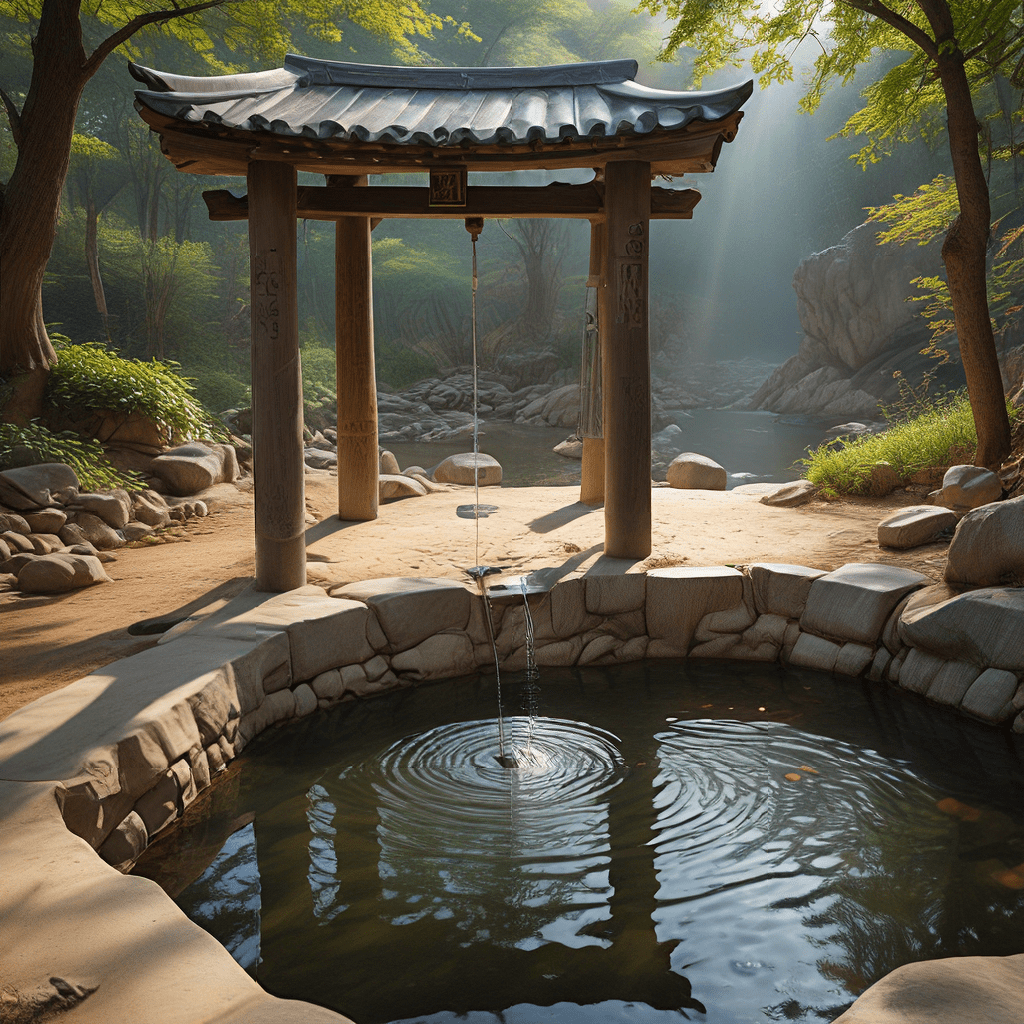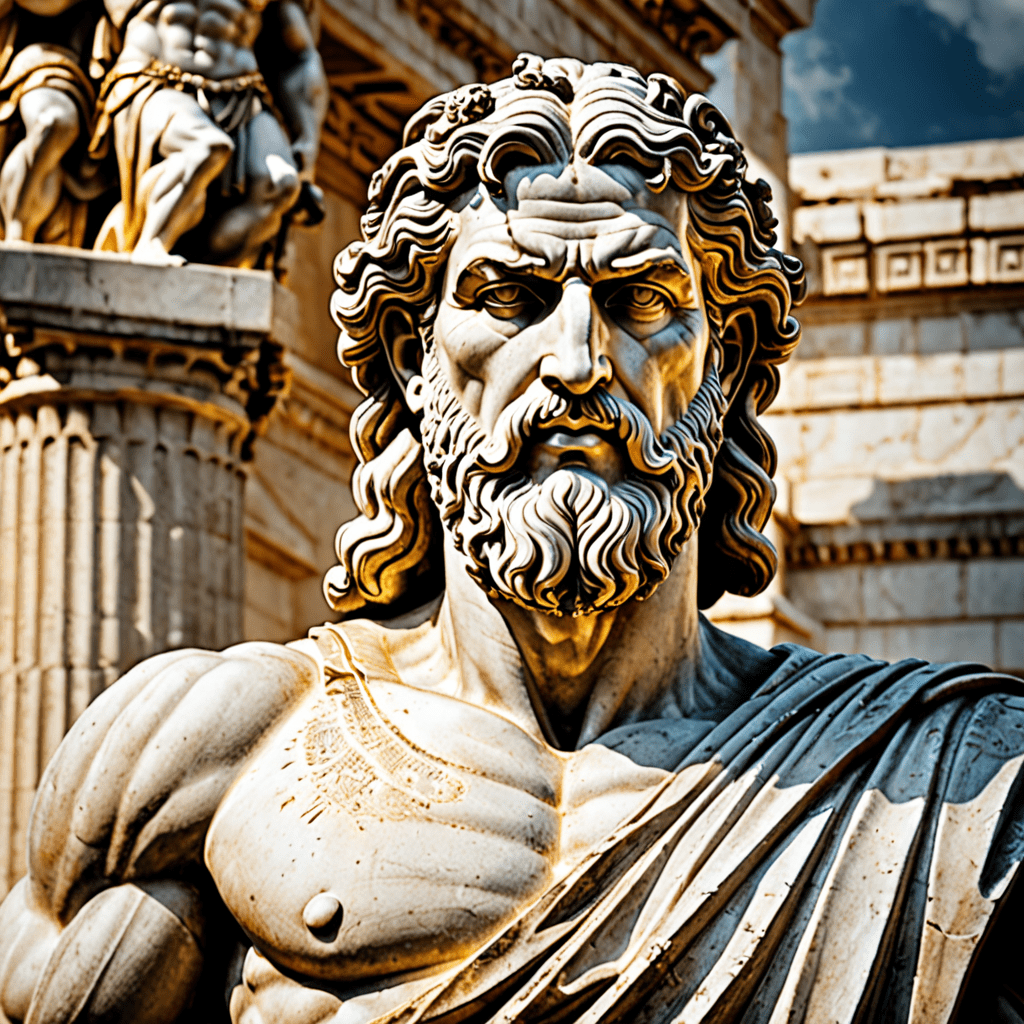Korean Folklore: Is There Truth to the Sacred Water Well Myth?
Origins and Significance of Sacred Water Wells
In Korean tradition, water wells hold a special place in both the physical and spiritual landscape. These wells, often situated in remote mountain villages or near sacred sites, are revered as sources of life-giving water and are often associated with mythical origins and spiritual significance. They are more than just sources of water; they are considered portals to the divine, embodying the power and purity of nature.
The reverence for sacred water wells is deeply rooted in Korean cosmology, which emphasizes the interconnectedness of the natural world and the spiritual realm. These wells are believed to be conduits of energy, connecting the heavens, earth, and the underworld. They serve as reminders of the essential role water plays in sustaining life, and they embody the resilience and adaptability of Korean culture.
The Role of Water in Korean Cosmology
In Korean mythology, water is a vital element that represents life, purity, and transformation. It is believed to cleanse the body and soul and is often associated with spiritual renewal and rebirth. Water is also seen as a powerful force that can be both nurturing and destructive, reflecting the duality of nature and the interconnectedness of all things.
Water plays a critical role in Korean shamanism, a traditional belief system that emphasizes the connection between the spirit world and the natural world. Shamanic rituals often involve water, which is used for purification, divination, and healing.
Mythical Origins and Legends of Sacred Water Wells
Many legends surround the origins of sacred water wells in Korean folklore. Some tales tell of deities or spirits who created the wells to provide water for humans, while others speak of wells that were formed through supernatural events, like the impact of a celestial body or the tears of a powerful spirit. These myths often reflect the beliefs and values of Korean culture, highlighting the importance of water, respect for nature, and the interconnectedness of the spiritual and material worlds.
One common legend is the story of the Dragon King, a powerful deity who resides in the depths of the ocean and controls the rain. The Dragon King is said to have created some of the sacred water wells by using his magical powers to bring water to the surface. These wells are often associated with healing properties, as the Dragon King is believed to have the power to cure diseases and grant wishes.
Specific Examples of Sacred Water Wells in Korean Folklore
Throughout Korean history, many sacred water wells have been documented in folklore and literature. These wells are often associated with specific locations, historical events, or mythical figures. One well, located in the city of Gyeongju, is said to have been created by the mythical figure, Dangun, the legendary founder of Korea. This well is believed to have magical powers and is still visited by pilgrims who seek blessings and wish fulfillment.
Another example is the "Well of the Jade Emperor" located in the mountains of Jeolla Province. This well is said to have been created by the Jade Emperor, the supreme ruler of the heavens, and is believed to possess the power to grant immortality. This well is a popular destination for those seeking to connect with the divine and to gain spiritual enlightenment.
The Connection between Sacred Water Wells and Shamanism
Sacred water wells are often seen as focal points for shamanistic rituals and practices. Shaman, spiritual healers who act as intermediaries between the human world and the spirit world, often use water wells as places for divination, healing, and communication with spirits.
During rituals, shamans may use water from the well to cleanse themselves or their clients, or they may use it to offer sacrifices to spirits or deities. The water is believed to have special powers that can enhance the shaman's ability to communicate with the spirit world, connect with their ancestors, and heal the sick.
The Use of Sacred Water Wells in Rituals and Ceremonies
Korean rituals and ceremonies often center around sacred water wells, highlighting their deep cultural and spiritual significance. These wells are used for a variety of purposes, including purification, divination, and healing.
Before entering a sacred space or performing a ritual, individuals often cleanse themselves with water from the well, symbolizing the washing away of negativity and the purification of the soul. Water is also used in offerings to deities and ancestors, showing respect and seeking their blessings.
During festivals and celebrations, sacred water wells are often incorporated into rituals. Individuals might drink water from the well as a way to connect with their ancestors or to receive blessings from the gods.
Some ceremonies involve offerings of rice, flowers, or other objects to the spirits of the well, seeking protection and good fortune.
The act of drawing water from a sacred well can also be a ritualistic act, requiring specific methods and etiquette. For example, the individual might bow to the well before taking water or offer a prayer or chant as they draw water.
The Healing Properties and Spiritual Power Associated with Sacred Water
The water from sacred wells is often believed to possess healing properties and spiritual power. This belief is deeply ingrained in Korean tradition and is supported by numerous folk tales and legends.
People believe the water can cure a variety of ailments, from physical illnesses to mental and emotional distress. Some believe the water can even grant wishes or bestow good fortune.
The healing properties are often attributed to the spirits that reside in the well, which are thought to transfer their energy and power to the water. The water is also seen as a symbol of purity and renewal, serving as a reminder of the life-giving power of nature.
Many people visit sacred wells seeking healing or spiritual renewal. They may drink the water, bathe in it, or simply sit by the well and meditate. The act of connecting with the well is believed to be a powerful way to cleanse the body and soul.
The Impact of Confucianism and Buddhism on the Concept of Sacred Water
Confucianism and Buddhism, two major religions that influenced Korean culture, have also impacted the concept of sacred water wells. Confucianism, which emphasizes the importance of harmony and order, views water as a symbol of purity and renewal and reinforces the importance of respecting the natural world.
Buddhism, with its focus on the interconnectedness of all beings and the pursuit of enlightenment, sees water as a symbol of impermanence and the cyclical nature of life. This perspective aligns with the idea that water is a conduit of energy, connecting the heavens, earth, and the underworld.
These religions have contributed to the reverence for sacred water wells, solidifying their place as important spiritual sites in Korean culture.
The Evolution of the Myth of the Sacred Water Well in Modern Korean Society
While the myth of the sacred water well remains a powerful force in Korean culture, its significance has evolved over time. Modernization, urbanization, and the rise of science and technology have challenged traditional beliefs, leading to a decline in the number of people who actively practice shamanism or believe in the mystical properties of sacred water.
However, the myth of the sacred water well continues to hold cultural and historical significance. It serves as a reminder of the deep connection between Koreans and the natural world, and it represents the resilience and adaptability of Korean culture, which has always sought to find balance between the modern and the traditional.
Many sacred water wells have been preserved as cultural heritage sites or as tourist attractions. They are still visited by people seeking to connect with their heritage, to experience the beauty of nature, or to find solace and tranquility.
FAQ
What are some common legends surrounding sacred water wells in Korea?
Many legends surround the origins of sacred water wells in Korean folklore. Some tales tell of deities or spirits who created the wells to provide water for humans, while others speak of wells that were formed through supernatural events, like the impact of a celestial body or the tears of a powerful spirit. These myths often reflect the beliefs and values of Korean culture, highlighting the importance of water, respect for nature, and the interconnectedness of the spiritual and material worlds.
How are sacred water wells used in modern Korean society?
While the myth of the sacred water well remains a powerful force in Korean culture, its significance has evolved over time. Modernization, urbanization, and the rise of science and technology have challenged traditional beliefs, leading to a decline in the number of people who actively practice shamanism or believe in the mystical properties of sacred water.
However, the myth of the sacred water well continues to hold cultural and historical significance. It serves as a reminder of the deep connection between Koreans and the natural world, and it represents the resilience and adaptability of Korean culture, which has always sought to find balance between the modern and the traditional.
Many sacred water wells have been preserved as cultural heritage sites or as tourist attractions. They are still visited by people seeking to connect with their heritage, to experience the beauty of nature, or to find solace and tranquility.
Are there any specific examples of sacred water wells in Korean folklore?
Throughout Korean history, many sacred water wells have been documented in folklore and literature. These wells are often associated with specific locations, historical events, or mythical figures. One well, located in the city of Gyeongju, is said to have been created by the mythical figure, Dangun, the legendary founder of Korea. This well is believed to have magical powers and is still visited by pilgrims who seek blessings and wish fulfillment.
Another example is the "Well of the Jade Emperor" located in the mountains of Jeolla Province. This well is said to have been created by the Jade Emperor, the supreme ruler of the heavens, and is believed to possess the power to grant immortality. This well is a popular destination for those seeking to connect with the divine and to gain spiritual enlightenment.



